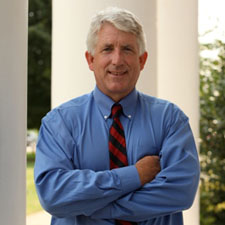
Virginia’s petition will be one of the first in the nation, after Utah filed its petition earlier today, allowing the Court to consider accepting Virginia’s case at their September conference. The Commonwealth signaled its intention in a filing today with the 4th Circuit Court of Appeals, which last week agreed with Attorney General Herring’s position that Virginia’s same-sex marriage ban violates the U.S. Constitution. That filing requests that the Court stay its mandate pending the Supreme Court’s decision whether to hear the case. The Prince William County Clerk of Court announced last Friday that she intended to file a petition for certiorari. Attorney General Herring’s filing ensures that no delay arises during the available 90-day window to petition for certiorari.
“Throughout this case, I have fought for the fundamental rights of Virginians and the quickest possible resolution,” said Attorney General Herring. “I believe the district and appeals courts ruled correctly in striking down Virginia’s discriminatory marriage ban, but it has long been clear that the Supreme Court will likely have the final word. I want that decision to come as soon as possible and I want the voices of Virginians to be heard. This case has moved forward at an incredibly swift pace, and I look forward to a final resolution that affirms the fundamental right of all Virginians to marry.”
Virginia’s case presents a number of legal questions that could be settled by the Supreme Court, including whether states can prevent same-sex couples from marrying and whether states can refuse to recognize valid marriages performed in other states.
As it has done throughout the case, the Commonwealth has asked the 4th Circuit for a stay of its ruling until all appeals are final. The motion notes that the Supreme Court has already issued stays in similar cases, the complexity of unwinding marriages and transactions that depend on them–like adoptions, inheritance, tax filings, or filings of birth or death certificates– and the fact that this case has moved extremely quickly and can be resolved in the very near future.
The Commonwealth’s motion concludes as follows:
“This case has moved with unusual speed. It was argued in the district court in February and in this Court in May, and it is now ready for review by the Supreme Court. Speed is warranted, for it is unjust for Virginia’s same-sex couples to have to wait even a little while longer for the promise of the Fourteenth Amendment to be fulfilled. As this Court observed, across the Commonwealth, more than 2,500 same-sex couples are raising more than 4,000 children. They are our fellow Virginians. And the Attorney General is committed to ensuring that the government stops treating them as second-class citizens.
“It is with great reluctance, therefore, that the Attorney General agrees that a stay is warranted. The unintended consequences that will befall the Commonwealth and its people if the injunction takes effect prematurely, and the clear signal sent by [the Supreme Court] in Evans and Kitchen II, show the necessity of staying the mandate until the Supreme Court can conclusively resolve what may well be the most important civil rights issue of our time.
“We are nearly there.”










